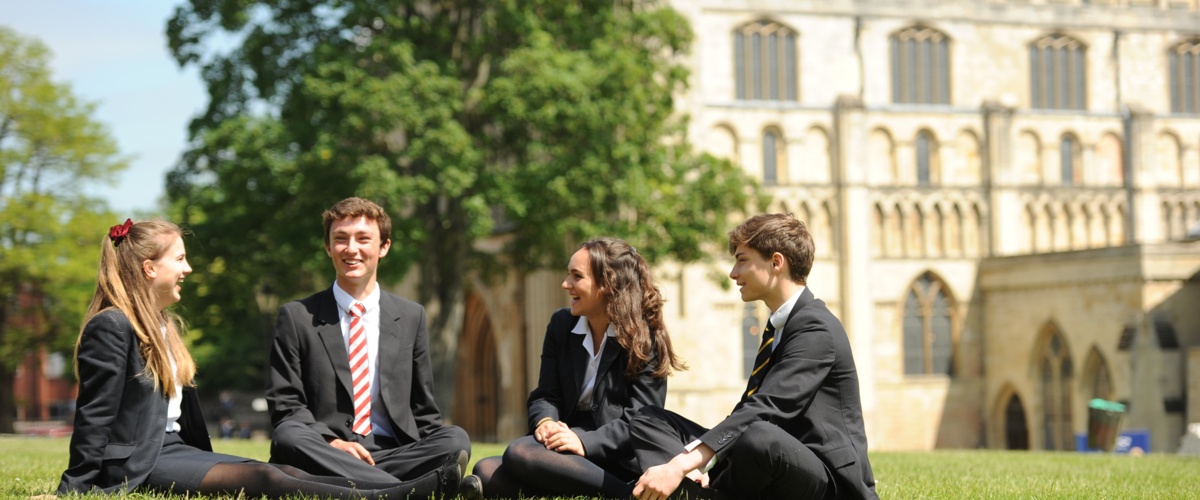Frequently asked questions


How early in the academic year would you advise students to think about their subject choices at A-level?
We introduce A Level choices formally to Year 11 pupils in October and continue to work with them throughout their GCSE year. These decisions are firmed up during an interview with our advice team, after mock exams in January.
What support do you offer in the way of careers advice/coaching?
The school has an advisory team, which includes the Head of Sixth Form, Head of UCAS, Careers and Higher Education. They have lots of experience advising young people about A Level choices and career paths beyond. Our annual Careers Networking Event, at the Open venue in Norwich, takes place in March and is well attended by pupils and their parents in Years 9-13. We have well-established links with local business and the professions, who give up their evening to offer guidance to our pupils and those from other Norfolk schools.
Do you advise students to look ahead to university courses?
We encourage pupils to think about their futures throughout their time with us and particularly from the start of Year 10, especially when considering their GCSE choices. This becomes more focused in Year 11 when every pupil is given an interview after their mock exams to help refine their A Level choices and think more seriously about their life beyond school, whether that is university, degree apprenticeship or another route. The school seeks to support its leavers with any and all such options.
What are some of the most popular A-level subjects you offer?
Our most popular A Levels are Maths and the three Sciences, closely followed by History, Economics, Politics, English and Geography. We also have large numbers of talented pupils studying creative subjects, including 2D Design: Graphics, Photography and 3D Design and Fine Art. In a world where MFL departments are being cut, we also offer French, German and Spanish at A Level.
Would you advise a student against pursuing a particular A-level – if so, why?
Pupils need to be able to study subjects they really enjoy and that is always our starting point. Sometimes particular courses, or career paths, require specific A Levels: Medicine will require Chemistry and normally Biology, for example. Oxbridge Medics need to study three sciences but other medical schools are happy to see a third A Level that is not a Science. If you want to study Engineering, you will need Maths and typically Physics or Chemistry A Levels. It is also true that some A Level subjects are a significant step up from GCSE. If a young person is struggling with GCSE Maths or Science, or a Modern Language, for example, we would be cautious about recommending those subjects at A Level.
What would you advise for a student who wants to pursue a subject that they’ve never studied before?
We would encourage them to speak to the Head of Department and investigate the course content thoroughly. We also encourage them to speak to other pupils who already studying that subject. Pupils enjoy the opportunity to study new subjects at A Level: lots of our pupils take Politics, Economics and Business Enterprise, for example. All of these are new to them and not taught at GCSE here.
What would you advise a student to do if they don’t think they want to pursue A-levels at all, in any subjects?
The provision at Norwich School is A Level and pupils typically study three subjects over two years. We know, however, that A Levels are not the only pathway available to young people. The growth of apprenticeship opportunities continues to expand nationally, although it still remains patchy in this part of the UK. With many employers still expecting to see A Levels, or equivalent qualifications, I would advise pupils to think seriously before abandoning the idea completely.
How can parents/guardians help students to choose the right subjects for them?
Being a good listener and responding positively to the aspirations of young people are key tasks for a parent/guardian. Lots of parents take an active role in supporting their children when making these crucial decisions, attending school Open Evenings and talking to the staff about their subject, for example. Family members and friends sharing their experiences can be really useful. It is also important to remember that the world of education and employment has changed quite a bit since many parents were at school. Doing the basic research and checking that people are not simply repeating old myths is one of the best things that parents/guardians and pupils can do together. Work experience or volunteering is also something that can be really helpful to a young person when trying to decide what they might want, or not want, to do in the future. It is very helpful if parents can help young people to organise something.
